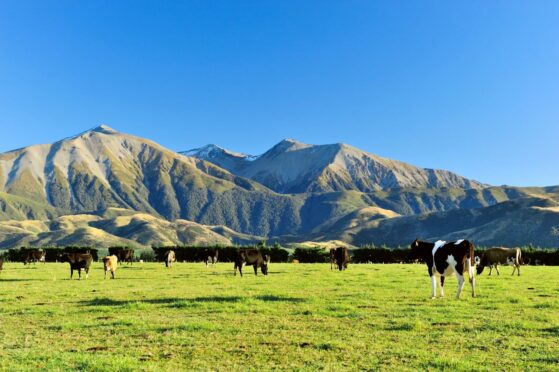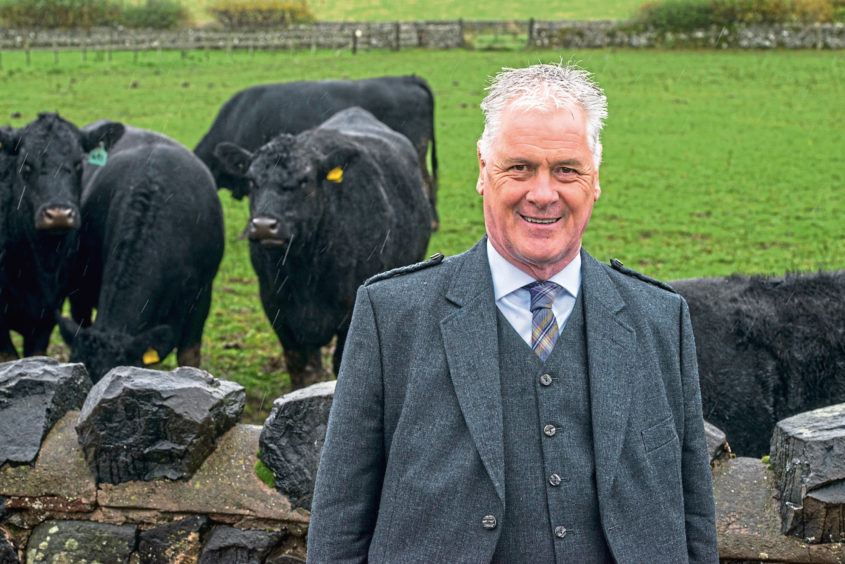Farm leaders have hit out at news of a new UK-New Zealand trade deal warning it could push British farmers out of business.
They warn the trade deal, announced late on Wednesday night, will open the doors to significant volumes of imported food produced at a lower cost and to different standards than those followed in the UK.
The deal will allow tariff-free imports of a range of food products – including beef, lamb, dairy produce and apples – with a cap on quotas for a number of years.
It follows a similar trade deal agreed between the UK and Australia earlier this year.
NFU Scotland president, Martin Kennedy, said the deal had been agreed without proper parliamentary scrutiny and it threatened the viability of many Scottish farm and croft businesses.
“This latest deal offers virtually nothing to Scottish farmers and crofters in return but risks undermining our valuable lamb, dairy and horticultural sectors by granting access to large volumes of imported goods that could be produced in farming systems not currently permitted here,” added Mr Kennedy.
“As with the Australian deal, there is to be a cap on tarriff-free imports from New Zealand for 15 years. That is merely a slow journey to allow New Zealand, a major exporter of food and drink, unfettered access to food and drink UK markets.”
NFU president, Minette Batters, shared Mr Kennedy’s concerns and said UK farmers faced “significantly higher costs of production” than their counterparts in New Zealand and Australia.
She added: “It’s worth remembering that margins are already tight here due to ongoing labour shortages and rising costs on farm.
“The Government is now asking British farmers to go toe-to-toe with some of the most export orientated farmers in the world, without the serious, long-term and properly funded investment in UK agriculture that can enable us to do so.”
She said it was very difficult for the NFU to show any support for trade deals with Australia and New Zealand as they involve significant upsides for farmers on the other side of the world, but little benefit to UK farmers.
Ms Batters added: “This could damage the viability of many British farms in the years ahead, to the detriment of the public, who want more British food on their shelves, and to the detriment of our rural communities and cherished farmed landscapes.”
Quality Meat Scotland, which oversees and promotes Scottish farm-assured red meat, said the trade deal could have a serious impact on the Scottish red meat industry, and in particular beef producers.
The levy body’s chief executive, Alan Clarke, said: “Compared to current conditions for beef, the deal represents a significant increase in New Zealand beef producers’ market access and, with farmgate prices in Scotland 25-30% higher than in New Zealand, this leaves Scottish farmers open to considerable competition.”
National Sheep Association chief executive, Phil Stocker, said the deal would give New Zealand sheep farmers the go ahead to export an additional 35,000 tonnes of sheep meat during the first four years of the agreement, and a further 50,000 tonnes from year five.
He added: “The worry continues that Government is content to wind down livestock farming in the UK, to fulfil climate commitments and grand images of high standards – and then scour the world to feed our nation from sources that are out of sight.
“To me this shows our future can only be in our hands – it is down to us to promote British lamb and mutton to our domestic market, a market that currently takes over 65% of our production, in a way that works for us.”


